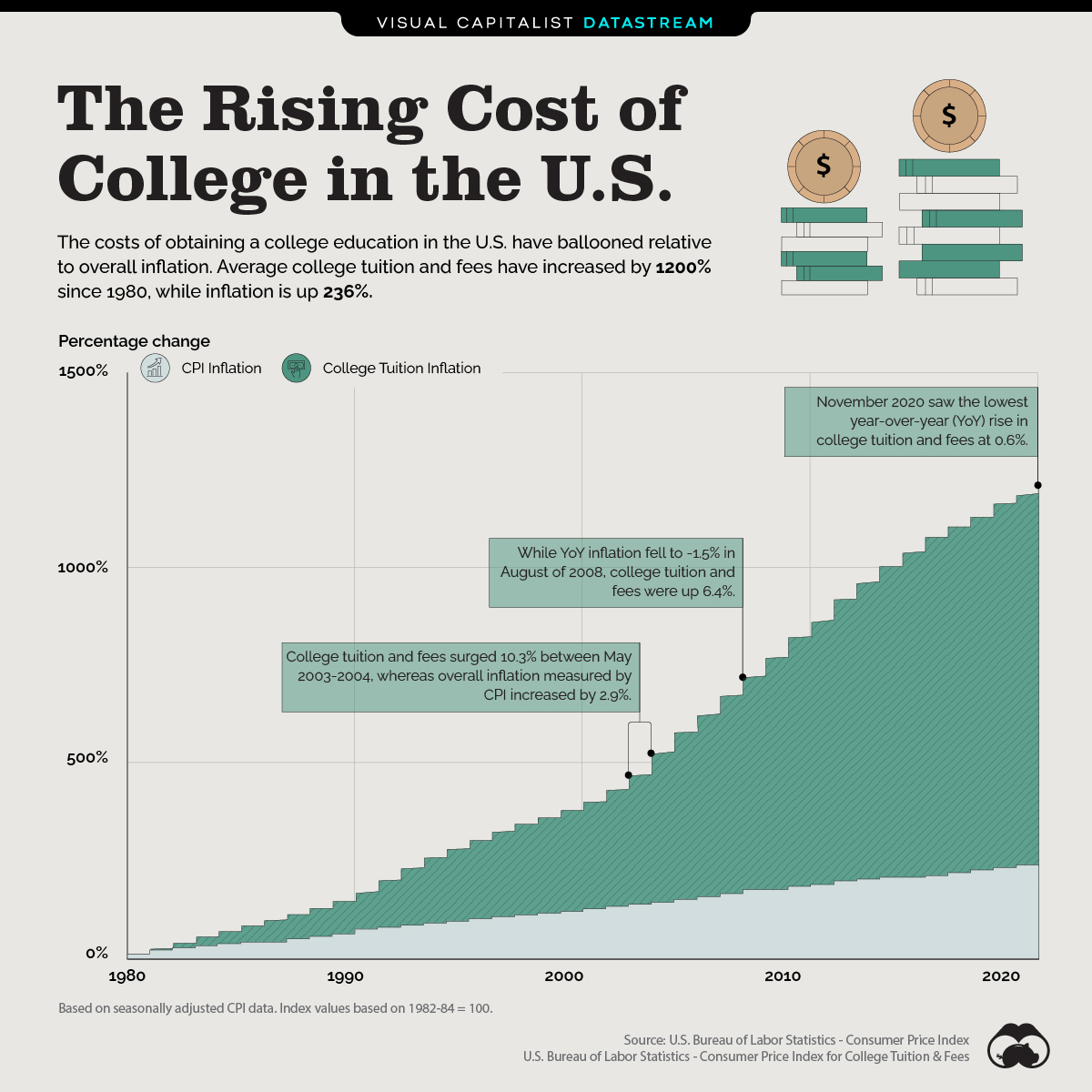Don’t be a Turkey.
I can tell you all about certificates since I completed several in-demand certificates that were for a time more valuable than my three cheap college degrees but in today’s rapidly evolving employment market, the traditional route of obtaining a college degree is being scrutinized. The skyrocketing costs, prolonged time investment, and uncertain returns have led many to reconsider their options. Here’s why focusing on obtaining a certificate or developing an in-demand skill can be a smarter, more efficient, and cost-effective alternative:
1. Cost-Effectiveness
For the last 30 years college tuition has been on a relentless rise, with many students graduating with staggering amounts of debt. In contrast, certificates and skill-based programs are often significantly less expensive. You can obtain certificates like I did with the CompTIA A+ and Security+ that immediately made my phone ring off the hook. This financial accessibility allows individuals to invest in their education without the burden of long-term debt, making higher education more attainable for a broader range of people. I remember completing my certificate in business from UCLA Extension, my CompTIA computer certificates that drew interest from employers that overlooked my stack of cheap college degrees.

2. Time Efficiency
A traditional college degree typically takes four or more years to complete. This is a substantial time commitment, especially for those who are eager to enter the workforce. Certificates and skill-based courses, however, can often be completed in a matter of months. This accelerated path to education enables individuals to quickly gain relevant skills and start applying them in real-world scenarios.
3. Focused Learning
I have met students taking general education courses not related to their degree taking up time and financial resources. College degrees often require students to take a variety of general education courses that may not be directly related to their career goals. Certificates and skill-based programs, on the other hand, are highly specialized. They focus intensively on the specific knowledge and skills needed for a particular job or industry, resulting in more relevant and applicable expertise.
4. Market Demand
Industries are evolving at a breakneck pace, and the demand for specific skills can change rapidly. Certificates and skill-based programs are designed to be agile and responsive to these changes. They are frequently updated to reflect the latest trends and technologies, ensuring that graduates possess the most current and in-demand skills. This adaptability makes certificate holders highly attractive to employers who need immediate expertise. Badges and posting online learning achievements are more attractive to employers than pieces of paper.
5. Real-World Experience
Many certificate and skill-based programs include practical components such as internships, apprenticeships, or hands-on projects. These experiences provide invaluable real-world exposure, allowing individuals to apply their skills in a professional setting. This practical experience is often more relevant and beneficial than the theoretical knowledge gained in traditional college courses. Yeah my degrees are in knowledge not in skills when I graduated way back in the 1990s my degrees were based on passing lecture based courses.
6. Career Advancement
Employers are increasingly recognizing the value of specific skills and certifications over generalized degrees. In many fields, having a recognized certification or a proven set of skills can be more impactful than a college diploma. It demonstrates to employers that the candidate has a dedicated focus and expertise in a particular area, which can lead to faster career advancement and higher earning potential.
7. Flexibility
Certificates and skill-based programs often offer more flexibility than traditional college degrees. They can be pursued part-time, online, or alongside current employment. This flexibility allows individuals to continue working while they enhance their skills, making it easier to balance education with other life commitments.
In conclusion, while a traditional college degree has its merits, the changing dynamics of the job market are making certificates and skill-based education increasingly valuable. They offer a cost-effective, time-efficient, and highly focused pathway to career success. By investing in specific skills that are in high demand, Americans can position themselves for immediate employment and long-term career growth.
This website is a great way to learn and speak English. Mr. Phil is a great teacher to learn and take information from. His YouTube is also another great way, the quality is amazing, he teaches you to say and understand words and sentences in English which is a great way, for example, say you want to work as a waitress at a restaurant and he will help you to speak and understand English where you can talk to the chef and the guests. He will also give you good advice for the future of English speaking to get a good job and you get paid more if you can speak 2 or more languages.